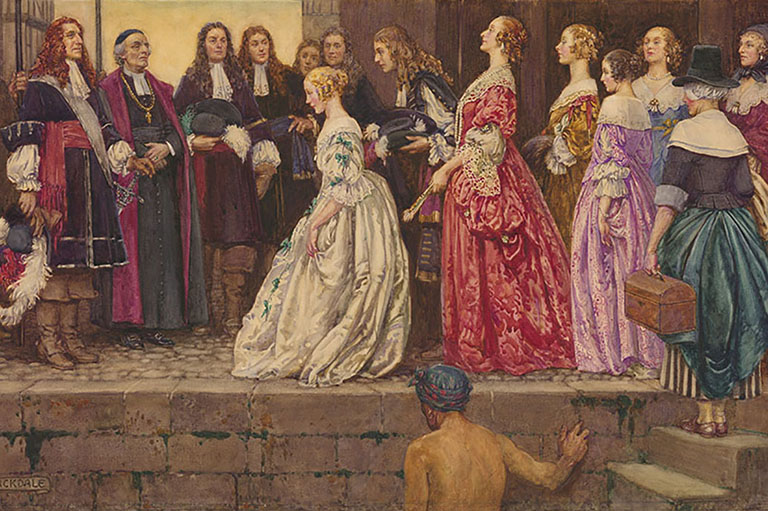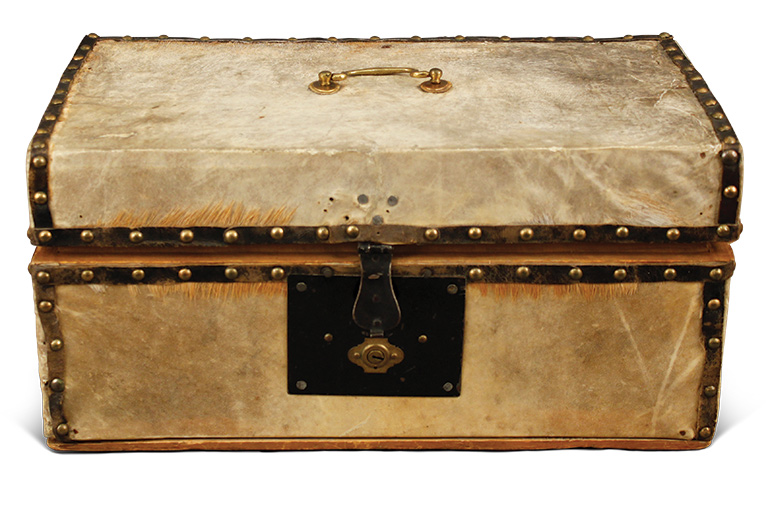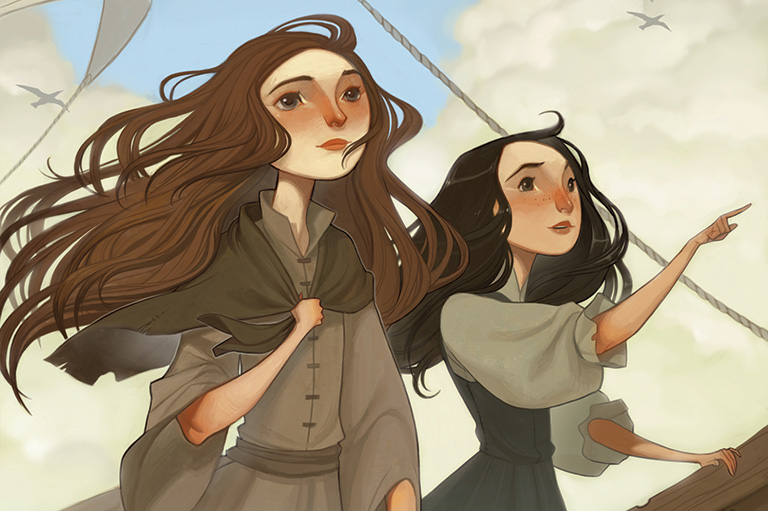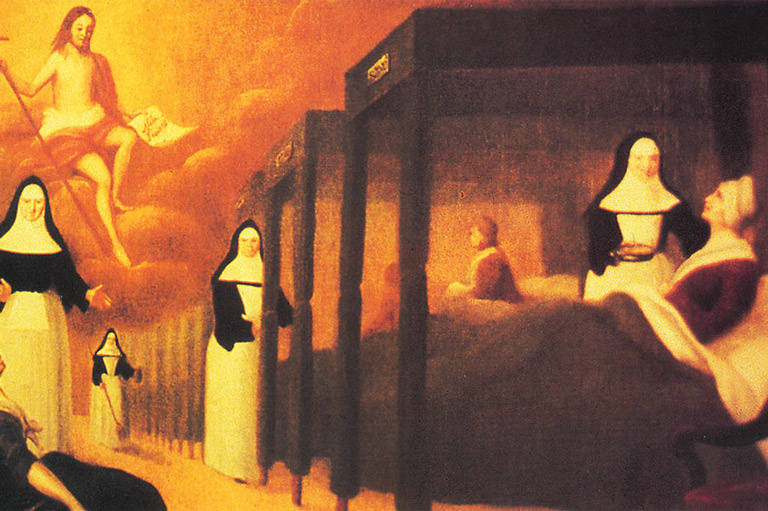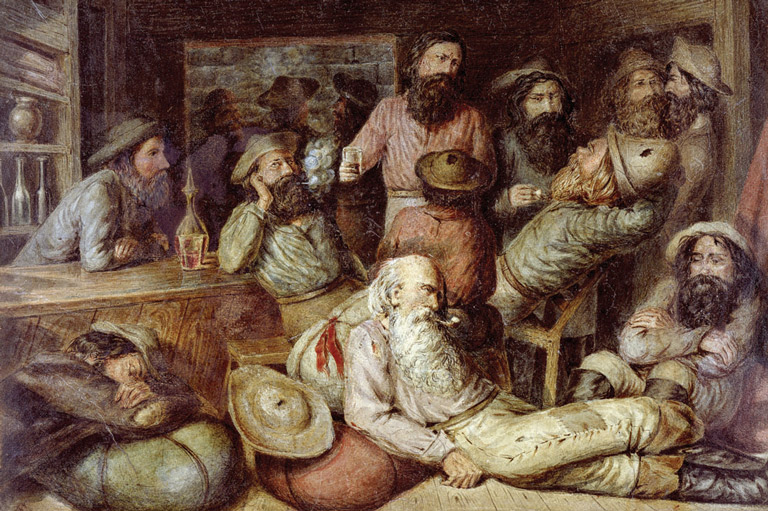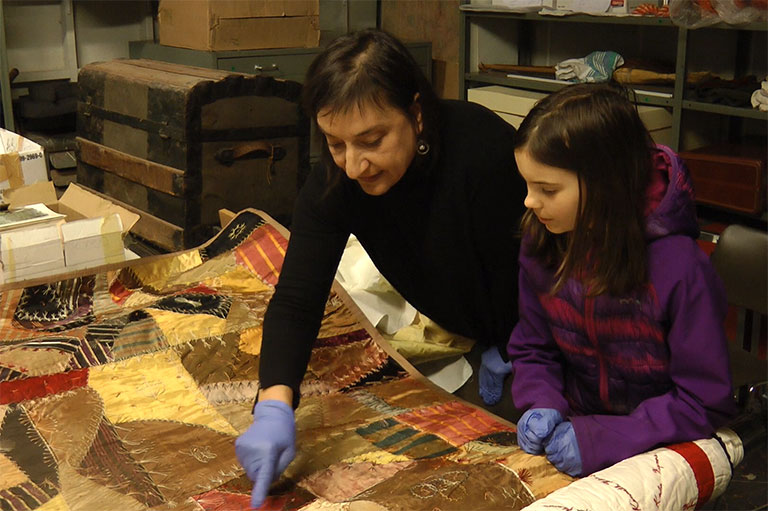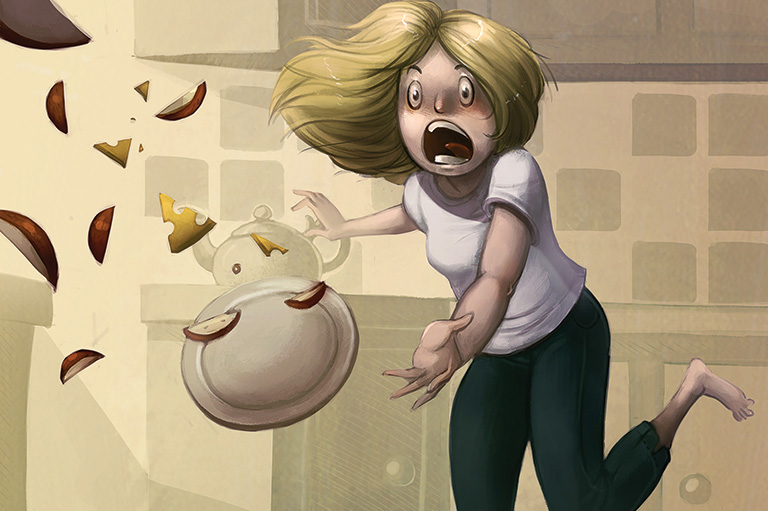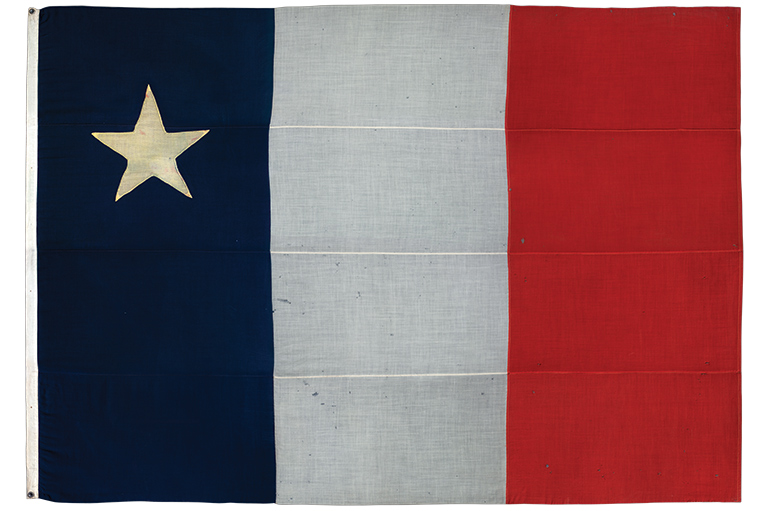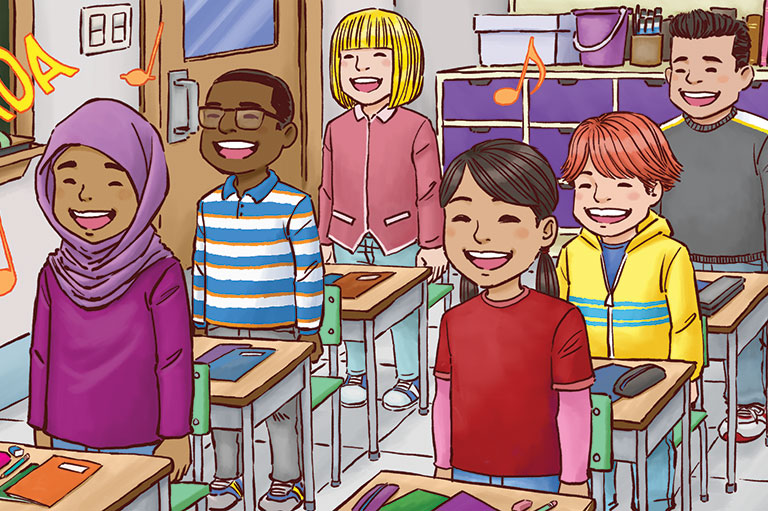Les Filles du Roi
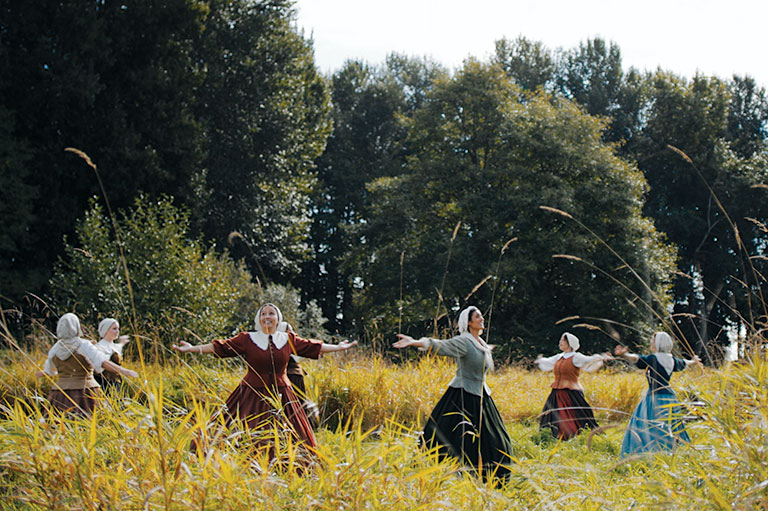
It was 1665 in New France, and young French women known as filles du roi (daughters of the king) began arriving in the new colony by the shipload. Their assignment: Marry a colonist and have lots of children.

But what if one of those young women fell in love with an Indigenous man? All hell would break loose.
This is the premise of an award-winning theatrical production that is being made into a film. When Les Filles du Roi, by Vancouver’s Urban Ink, premiered in 2018, it was hailed as groundbreaking for reimagining this period of early colonial history.
Presented in three languages — French, English, and Kanien’kéha:ka, a Mohawk dialect — it was lauded by critics for its beautiful set designs and costumes, stirring music, and lively dance numbers. Plot-wise, it was ambitious, telling the well-known settler story through the perspectives of women and Indigenous people. As a Globe and Mail reviewer put it, “It is a vision Canadians live with daily — messy, complex and strewn with challenges.”
The theatrical production won four Jessie Richardson Theatre Awards in Vancouver. Co-producer Corey Payette said in January that the film version, also titled Les Filles du Roi, was nearing completion.
The story, written by Julie McIsaac, a descendant of one of the filles du roi, opens with a young Indigenous girl, Kateri, and her fur trader brother, Jean-Baptiste, witnessing the arrival of the filles du roi. They meet one of the young French women — Marie-Jeanne Lespérance (played by McIsaac) — and forge an unlikely bond amid a backdrop of conflicting interests among the Mohawk, French, and English.
Lespérance escapes a brutish French husband to become an outlaw, while Kateri prepares for her future role as clan mother. Their standings in their respective cultures — French patriarchy versus Mohawk matriarchy — contrast starkly. Both endure violence at the hands of white men. Meanwhile, Jean-Baptiste, the offspring of a French father and a Mohawk mother, must carefully navigate his two worlds.

“This was something that was really absent from the narrative of our country coming into being,” said Payette, who is of Oji-Cree, French, and, as he discovered while researching the story, Mohawk descent. “We knew one perspective, but we are missing the whole other side of the story.”
The story ends on a hopeful note as it explores the question: What if the European colonizers had peacefully incorporated the wisdom of Indigenous culture into their own, instead of forcing themselves onto their hosts?
The film is expected to be released later this year.

Sign up for any of our newsletters and be eligible to win one of many book prizes available.
Themes associated with this article
Advertisement
You might also like...
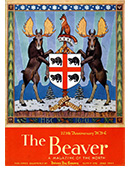
Canada’s History Archive, featuring The Beaver, is now available for your browsing and searching pleasure!

